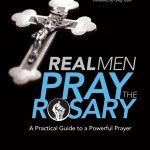The history of Elizabethan England and the persecution of Catholics is quite interesting. When I think of it I think of the recusants along with the priest holes. A time of severe trial for Catholics along with so many martyrdoms. There are some classic novels covering some aspects of this time period such as Edmund Campion by Evenlyn Waugh and Come Rack! Come Rope!
by Mon. Robert Hugh Benson. So I was quite interested when I saw the mention of a book called Treason: A Catholic Novel of Elizabethan England
by Dena Hunt. When I saw that Joseph Pearce highly recommended it and wrote a introduction to it I was certain I wanted to read it. Add the fact that it is published by Sophia Institute Press and had an ebook edition at a very reasonable price I bumped it up in books I wanted to read.
What I found was that not only was this book an equal to the two classics I mentioned, but in some ways it excelled them. I was so caught up in the story that it was easy to forget that it was historical fiction. What I especially liked was the focus on Catholic families and their struggles. Other books concentrate on specific historical figures and specifically the martyrdom of priests. There is some of that aspect in this book, but also the white martyrdom of the recusants. The complexities of the political situation along with how individuals reacted to it is displayed in such a way that you can better understand the history. Still it is the characters and the writing that so bring this book alive and when you add the rich spiritual dimension you have a great book.
Catholics can find this piece of history interesting as they try to imagine how they would react if Catholicism became outlawed. Especially considering the current attack on religious freedom here in the United States and elsewhere. Yet the reality displayed within the book makes me wonder what my own choices would be. Would I take the path of the recusants or be a hidden Catholic? Looking at the simular situation in China with the Patriotic Catholic churches and the underground churches it is also easy to imagine ourselves as attending the underground church.
One of the other compelling points in the book is the change in the country that began to see Catholics as actual traitors to the country. Obviously the title of the book gives this away. In some ways it hard to understand how this historically Catholic country could so transform itself that Catholicism became a traitorous act. Yet really the tying of a kind of patriotic nationalism and faith is nothing new. Such shifts can occur quite rapidly as the Protestant “reformation” proved. That what political party someone belongs to can say more about what aspects of the faith they accept than the fact that they are Catholic. The tension between what belongs to Caesar and God seems to constantly favor Caesar.
What I loved about this book, despite how bittersweet it was, is what it taught me while totally enjoying the fictional story. A book that I simply did not just leave behind as I started another book. A book that I am still thinking about.
















